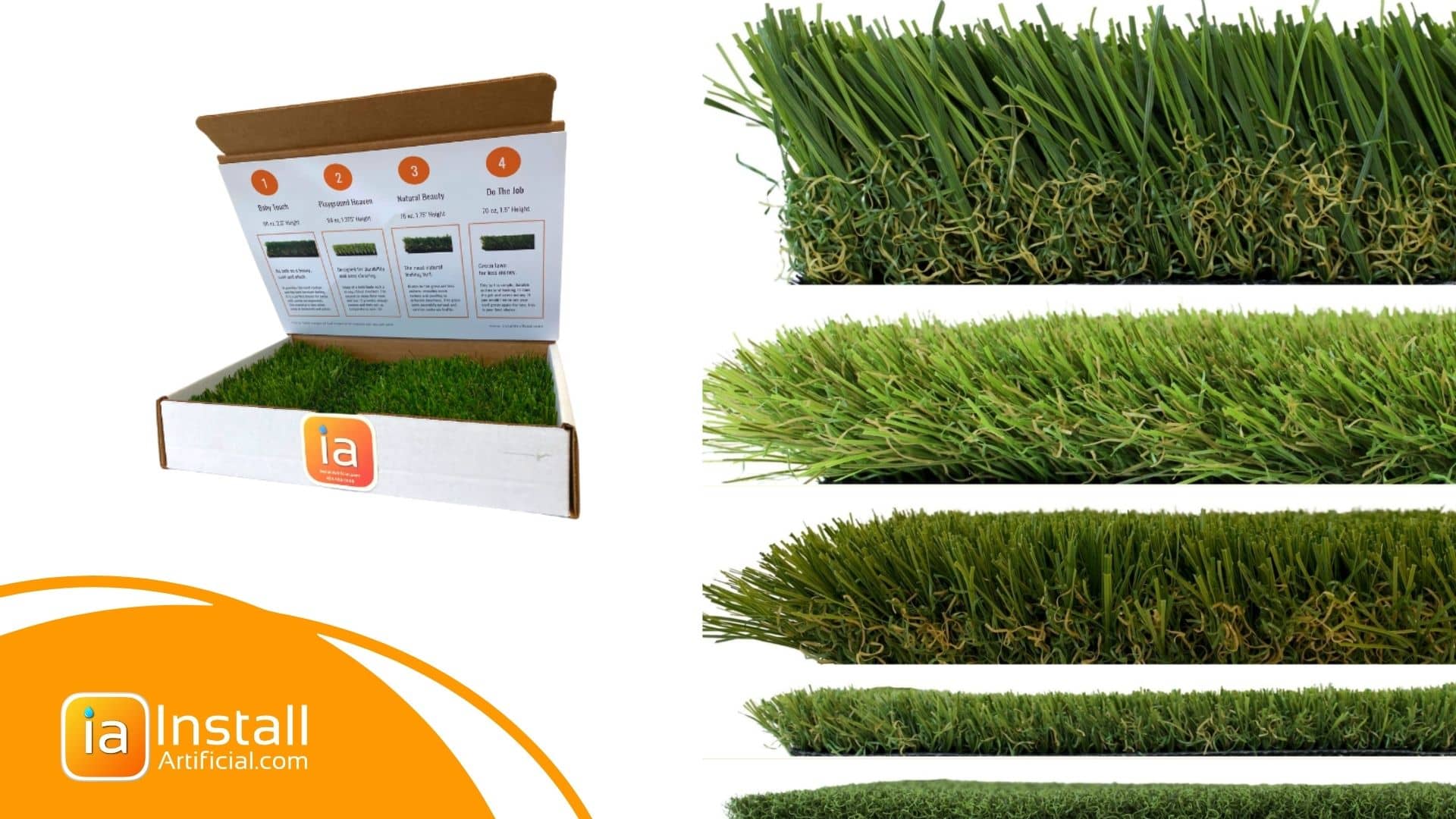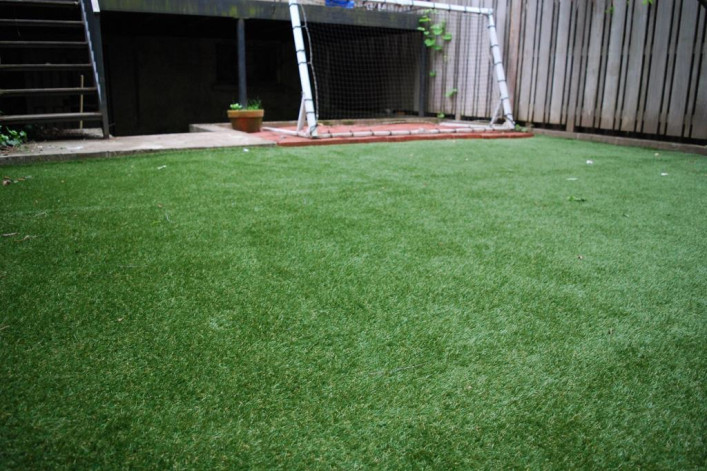Leading Factors to Think About Artificial Grass for a Low-Maintenance and lush Backyard
As home owners increasingly look for lasting options for outside spaces, man-made turf offers an appealing alternative to standard lawns. The benefits extend past plain aesthetic appeals and sustainability; discovering the multifaceted ramifications of man-made turf reveals a thorough strategy to backyard administration that merits much deeper factor to consider.
Year-Round Greenery
One of one of the most significant benefits of man-made lawn is its ability to provide year-round plant, regardless of climate problems. Home owners usually encounter challenges in maintaining a dynamic lawn because of seasonal adjustments, droughts, or heavy rainfall. Synthetic lawn gets rid of these issues, making certain a consistently rich appearance throughout the year.
This synthetic option is crafted to hold up against diverse weather situations, from burning summertime heat to freezing winter months temperatures. Unlike natural lawn, which might brown or become patchy throughout severe conditions, synthetic grass maintains its vivid shade and structure, enhancing the aesthetic allure of any landscape.
Furthermore, fabricated lawn is immune to insects and diseases that usually affect natural yards. This resilience contributes to its enduring charm, as there is no need for chemical treatments or plant foods that can be unsafe to the environment. Moreover, property owners can delight in the aesthetic benefits of a properly maintained yard without the cyclical challenges positioned by all-natural yard treatment (artificial grass).
Lowered Upkeep Efforts
Artificial lawn dramatically decreases maintenance initiatives, enabling property owners to enjoy a beautiful lawn without the time-consuming tasks connected with all-natural lawn care. Among the most noteworthy advantages of artificial grass is the elimination of regular mowing. Without demand for a lawnmower, home owners conserve both time and the expense of maintenance connected with this equipment.

Cleansing artificial lawn is uncomplicated; an easy rinse with a hose pipe or the occasional brushing to remove debris is typically sufficient - turf installation. This convenience of care allows house owners to invest even more time enjoying their exterior spaces as opposed to laboring over them. In summary, the lowered upkeep efforts connected with artificial turf make it an appealing selection for those looking for a gorgeous, problem-free lawn
Water Preservation Benefits
The considerable decrease in maintenance efforts related to synthetic grass prolongs to water preservation, making it an eco-friendly option for homeowners. Traditional grass call for significant amounts of water to continue to be vivid and rich, frequently bring about too much water use, specifically in dry regions. In contrast, man-made yard removes the requirement for normal watering, dramatically decreasing the total water usage in your yard.
By going with artificial grass, property owners can save countless gallons of water annually. This shift not just advantages individual houses but additionally adds to wider environmental efforts targeted at minimizing water waste. In areas experiencing water scarcity, the adoption of man-made grass can play a considerable function in mitigating the impacts of dry spell and guaranteeing that beneficial water sources are used much more effectively.
Additionally, the installment of man-made lawn can help reduced local water demand, benefiting the area in its entirety. With expanding awareness of ecological concerns, choosing man-made yard acts as a proactive step in the direction of sustainable landscaping, aiding to preserve natural water sources while keeping a cosmetically pleasing outdoor room (artificial grass canoga park). In summary, man-made lawn offers an engaging remedy for water preservation, straightening ecological obligation with contemporary landscape design demands

Bug and Allergic Reaction Reduction
A considerable advantage of setting up synthetic grass is its capacity to minimize insects and allergens in outside spaces. Typical lawn yards frequently function as breeding premises for insects such as insects, ticks, and ants, which can produce pain and useful reference wellness threats for families and pets. On the other hand, fabricated lawn removes the organic material that attracts these parasites, consequently significantly lowering their populations in your lawn.
Furthermore, all-natural yard can harbor mold, pollen, and various other irritants, which can set off allergies and respiratory system concerns for sensitive people. Synthetic grass offers a cleaner atmosphere, reducing the possibility for allergenic reactions. Source Unlike all-natural turf, synthetic grass does not create pollen, making it an excellent choice for allergic reaction victims seeking to appreciate their exterior areas without the danger of flare-ups.
In addition, the absence of dirt in synthetic grass suggests there is less dust and dust, additional decreasing airborne irritants. This low-maintenance alternative not just boosts the visual appeal of your backyard but additionally advertises a much healthier exterior atmosphere, permitting households to enjoy their grass without the consistent concern of parasites and allergens. Thus, synthetic lawn is a calculated selection for those prioritizing convenience and health and wellness in their exterior living rooms.
Long-Term Expense Financial Savings
Purchasing artificial lawn can cause substantial lasting price financial savings for house owners. While the initial investment may appear significant, the financial benefits with time can be considerable. Artificial grass gets rid of the need for regular yard upkeep costs, such as mowing, fertilizing, and watering. Standard lawns frequently call for considerable resources to keep a rich appearance, especially in areas vulnerable to dry spell or severe weather.
Moreover, the long life of synthetic turf further enhances its cost-effectiveness. The majority of top quality synthetic grass products can last 15 to 25 years with minimal upkeep, lowering the demand for substitute or comprehensive repairs. On the other hand, natural yard might require frequent reseeding and normal care, which can find this promptly add up in expenses.
Energy financial savings are one more critical variable. Property owners can anticipate to see reduced water bills, as synthetic turf does not call for irrigation. Additionally, the decrease in yard care solutions can maximize valuable time and sources, allowing homeowners to assign their spending plans somewhere else.
Verdict
In summary, fabricated grass provides numerous advantages for home owners seeking a low-maintenance and vivid landscape. Ultimately, the long-lasting expense financial savings linked with artificial grass solidify its condition as a sensible and lasting service for boosting outside rooms.
Fabricated grass substantially minimizes upkeep initiatives, enabling homeowners to enjoy an excellent yard without the taxing jobs connected with natural yard treatment.The considerable reduction in maintenance initiatives linked with fabricated lawn expands to water preservation, making it an ecologically pleasant alternative for house owners. In contrast, man-made lawn gets rid of the requirement for routine watering, substantially decreasing the general water consumption in your backyard.
In locations experiencing water shortage, the fostering of artificial turf can play a considerable duty in mitigating the effects of dry spell and making certain that useful water sources are used much more efficiently.
With expanding understanding of environmental concerns, selecting synthetic grass offers as a positive step in the direction of sustainable landscape design, aiding to protect natural water resources while preserving a cosmetically pleasing exterior area.